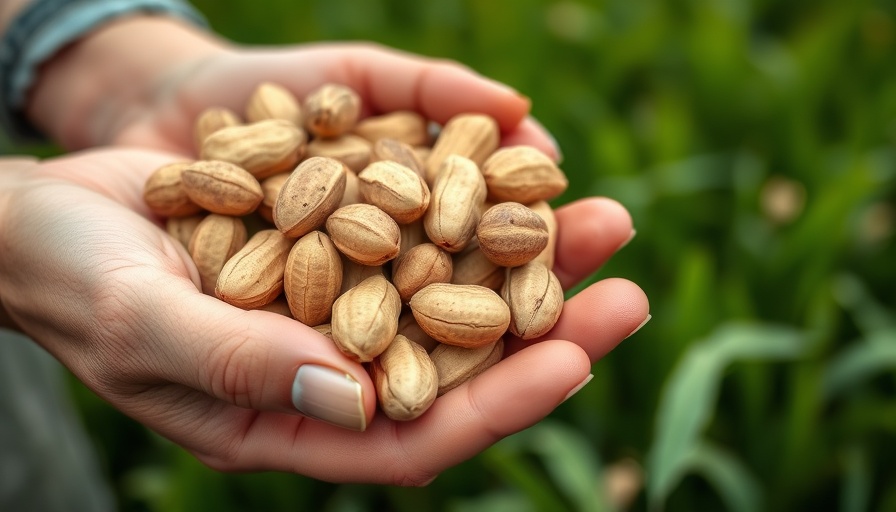
Mars Invests in a Climate-Friendly Future
In a significant move towards sustainable agriculture, Mars Inc. has announced a $15 million investment aimed at developing climate-resilient peanuts. This initiative not only focuses on enhancing the agricultural landscape but also underscores a robust commitment to combating climate change, which is increasingly threatening food security worldwide. For boutique hospitality professionals, this investment reflects an evolving shift towards responsible sourcing and sustainable practices that can be integrated into their own business models.
Understanding the Importance of Climate-Resilient Peanuts
The decision to invest in climate-resilient peanuts comes at a time when extreme weather events—such as droughts and floods—are affecting crop yields globally. Peanuts require optimal conditions for growth, and with climate change posing a significant threat, traditional farming methods may no longer suffice. Mars’ investment aims to support agricultural research programs that explore new farming techniques and crop varieties better suited to adapt to these changing conditions. Boutique hospitality owners can leverage this knowledge to promote locally-sourced and sustainable products, enhancing the guest experience.
The Role of Supply Chain in Sustainable Practices
Understanding the supply chain is vital for boutique hospitality professionals who wish to operate sustainably. Mars' commitment highlights how large corporations can set benchmarks for environmental responsibility. By incorporating sustainably sourced peanuts into their offerings, such as in desserts or spreads, small-scale hospitality operators can align their menus with sustainable practices, resonating with eco-conscious travelers who prioritize environmental stewardship while choosing accommodations.
Emphasizing Corporate Social Responsibility
For entrepreneurs in the hospitality sector, corporate social responsibility (CSR) serves as a cornerstone of operation. Mars’ investment not only showcases its dedication to sustainability but also sets a precedent for other corporations to follow suit. Boutique hotels and eco-lodges can take inspiration from Mars by implementing CSR initiatives of their own, making commitments to reduce waste, engage in local environmental projects, and support their communities.
Circular Economy and Zero Waste Innovations
In tandem with its investment in peanuts, Mars is increasingly focused on fostering a circular economy—where resources are reused, and waste is minimized. This concept aligns closely with the values of boutique hospitality operators aspiring to reduce environmental impacts. Implementing zero waste strategies in operations, such as composting and recycling programs, not only aids in sustainability efforts but can also attract clients who prioritize eco-friendly practices.
Next Steps for Boutique Hospitality Entrepreneurs
As boutique hospitality professionals contemplate how to emulate Mars’ sustainability efforts, they should focus on practical steps. Integrating regenerative business practices can not only elevate their brand but also enhance their market reach. They can prioritize local produce, reduce packaging waste, and promote partnerships with farms focused on sustainable agriculture.
In conclusion, the investment by Mars is a beacon of innovation towards climate-resilient agriculture, presenting valuable lessons for the boutique hospitality industry. By adopting sustainable practices that align with this investment, small-scale operators can enhance their offerings while contributing to a healthier planet.
 Add Row
Add Row  Add
Add 




Write A Comment